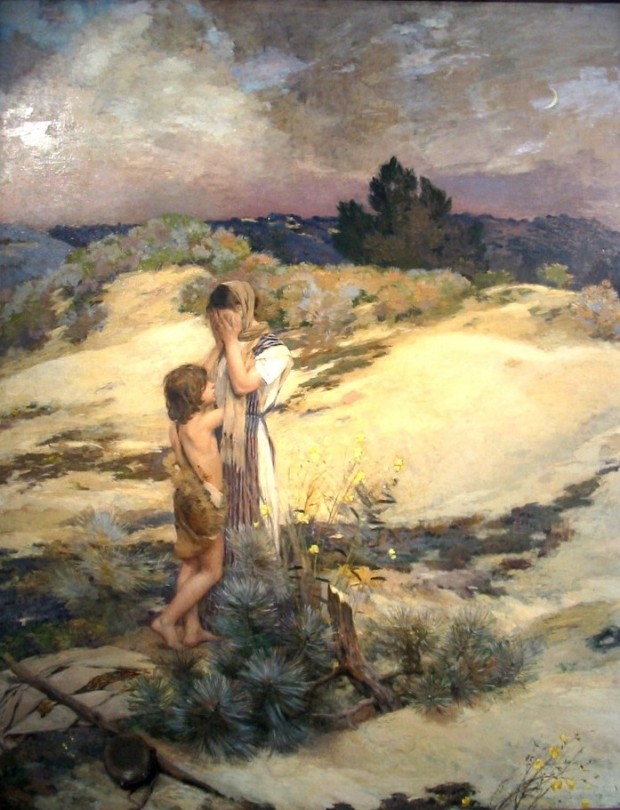START WITH SCRIPTURE:
Genesis 17:1-7, 15-16
CLICK HERE TO READ SCRIPTURE ON BIBLEGATEWAY.COM
OBSERVE:
This covenant almost seems too little too late for old Abram. He is ninety-nine years old, and logic would seem to dictate that he should be looking for a retirement home on the coast, not taking on a new responsibility!
Already, he has experienced a lifetime of promises from God, and a lifetime of challenges and disappointments. At seventy-five, he first heard God’s call to leave his home in Haran and go to a land he didn’t know anything about, in Canaan. He was promised land and descendants (Chapter 12).
The promise was reiterated in chapter 15 after he had entered Canaan, and after he had come to the rescue of his nephew Lot who was captured by marauding kings. But in chapter 15, Abram had indicated that he was beginning to wonder about the promises — he complained that he still had no heir even after all these years.
Chapter 15 is followed by a rather troublesome and complicated episode. Sarai, who was still barren, tried to manipulate matters and get an heir through a surrogate mother (namely her slave, Hagar). This left a sordid smudge on the otherwise sterling character of Abram.
In the passage we are considering now, it seems as though God is reaffirming his original promise to Abram. The covenant is to be renewed.
As with covenants and contracts of that day, this one has certain key ingredients:
- God identifies his own character as God Almighty (El Shaddai).
- God makes clear his demand of Abram’s character — that he be blameless. There is an ethical requirement placed on Abram. Perhaps this is a subtle reproach for Abram’s lapse with Hagar?
- God reiterates his promise to make Abram’s descendants numerous. This is a reaffirmation of his earlier promises.
Abram is overcome with a sense of awe and worship, and falls on his face before the Lord. What happens next is new:
- God changes Abram’s name to Abraham. Abram means exalted ancestor; Abraham means ancestor of a multitude. We know that in the ancient Hebrew culture, a name is highly significant. It denotes the character and the potential of its bearer. God changes Abram’s name as a way of denoting who Abraham is to become — the father of a multitude of nations. Nations and kings will come from his lineage.
Not only that, but Sarai, who was so deeply jealous of Hagar, and whose role as the wife of Abraham was imperiled very early on in a previous sinister episode with the Pharaoh of Egypt, would also be a central part of the fulfillment of the covenant. Her name is changed from Sarai to Sarah — meaning princess. She would be the mother of royalty!
APPLY:
When we experience the kind of setbacks and challenges to our lives that Abraham and Sarah experience, it becomes easy for us to give up on God’s promises for us.
Yes, we’ve heard all the Scriptures about how God cares for us, and wishes to bless us, and his wonderful promises for our lives. But then a crisis happens to a family member; or we get involved in some kind of ugly and complicated family dispute; or our dreams and hopes are deferred for so long that we begin to wonder if God’s promises apply to us after all.
Abraham’s experience with God reminds us to hold on — even into our old age. God is faithful and will bless us. Maybe not always in the way that we might expect, but he will keep his promises.
And as we worship him, and walk before him blameless, we will find in time that like Abram, our character will change — just as his name was changed to symbolize a change in him!
RESPOND:
There are some dreams I have for myself and for my family that seem to have been deferred so long that I’ve begun to wonder if they will ever come to pass. And I’d be lying if I didn’t admit that sometimes these “dreams deferred” have tested my faith.
Abraham and Sarah are a reminder to me that God doesn’t operate according to my timetable, but, as John Wesley once said, “God’s time is the best time.”
So, I keep my faith in God Almighty even when I haven’t received the promised inheritance — yet.
Lord, when promises seem to be unfulfilled, and I don’t seem to receive the “inheritance” that you have promised, please remind me that I am on the wrong schedule. I need to be on your schedule, not you on mine. Amen.
PHOTOS: "Christian poster outside Manchester Chinese Christian Church on Yarburgh Street in Moss Side, Manchester" by Alex Pepperhill is licensed under a Creative Commons Attribution-NoDerivs 2.0 Generic license.




